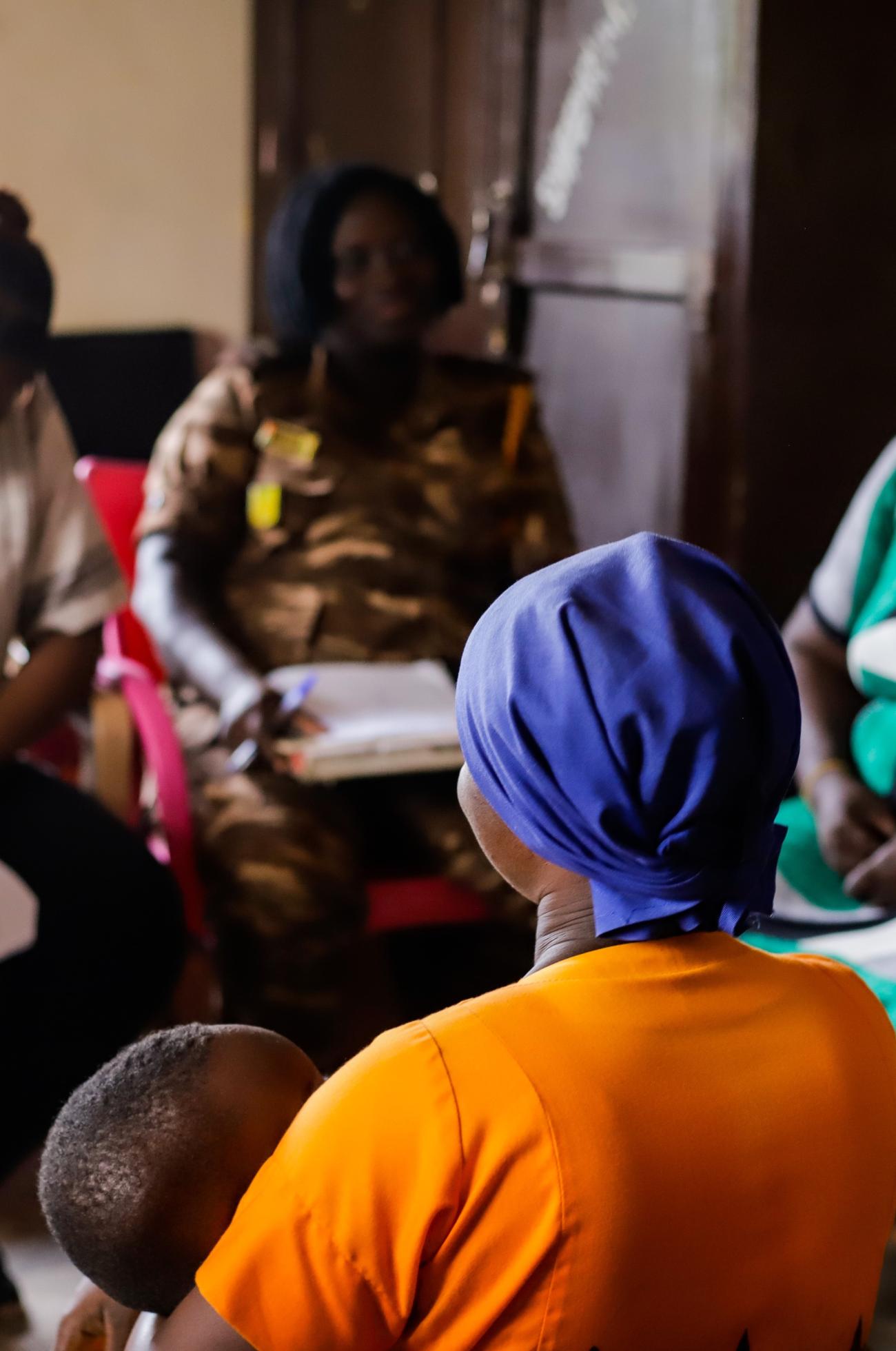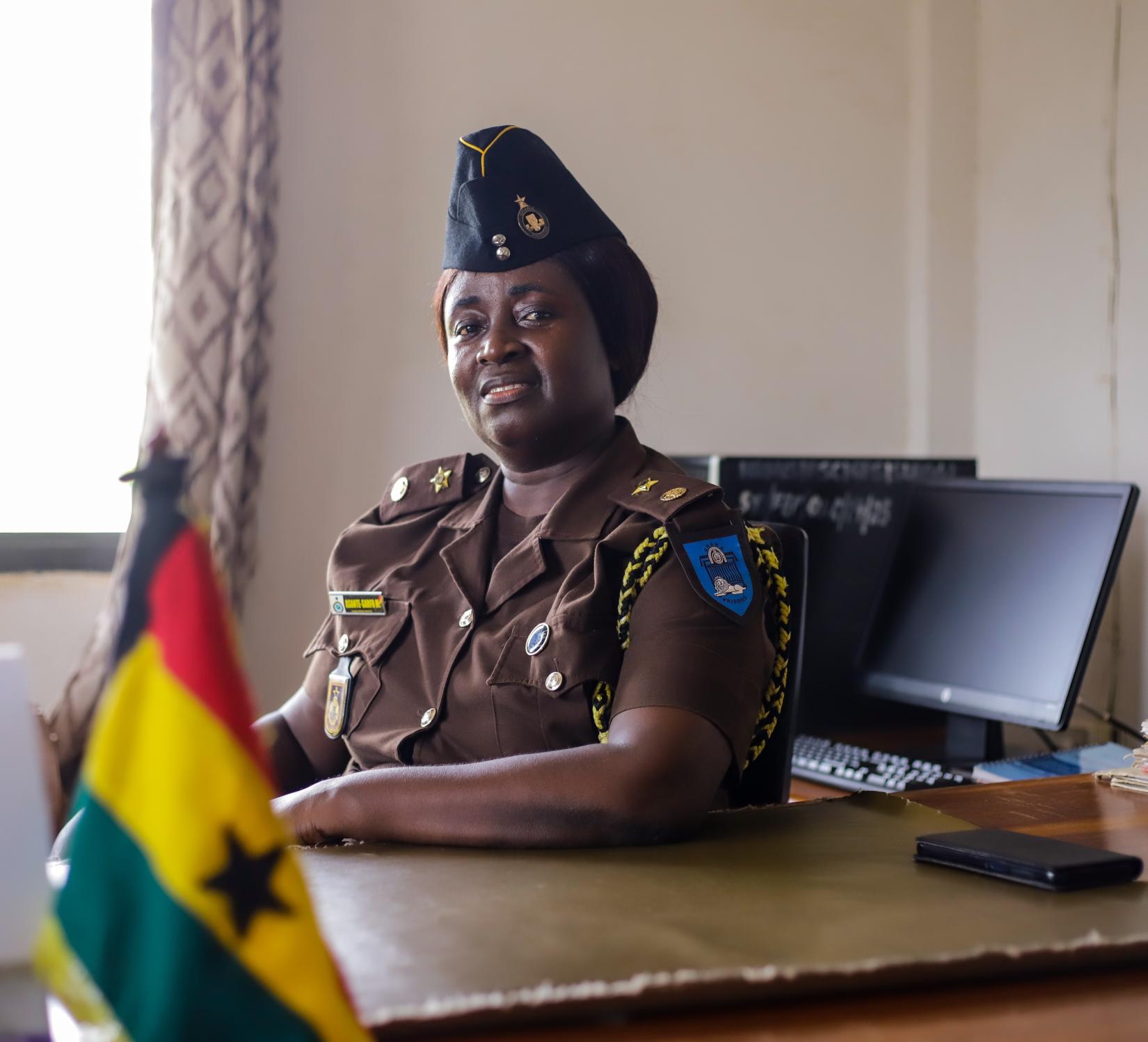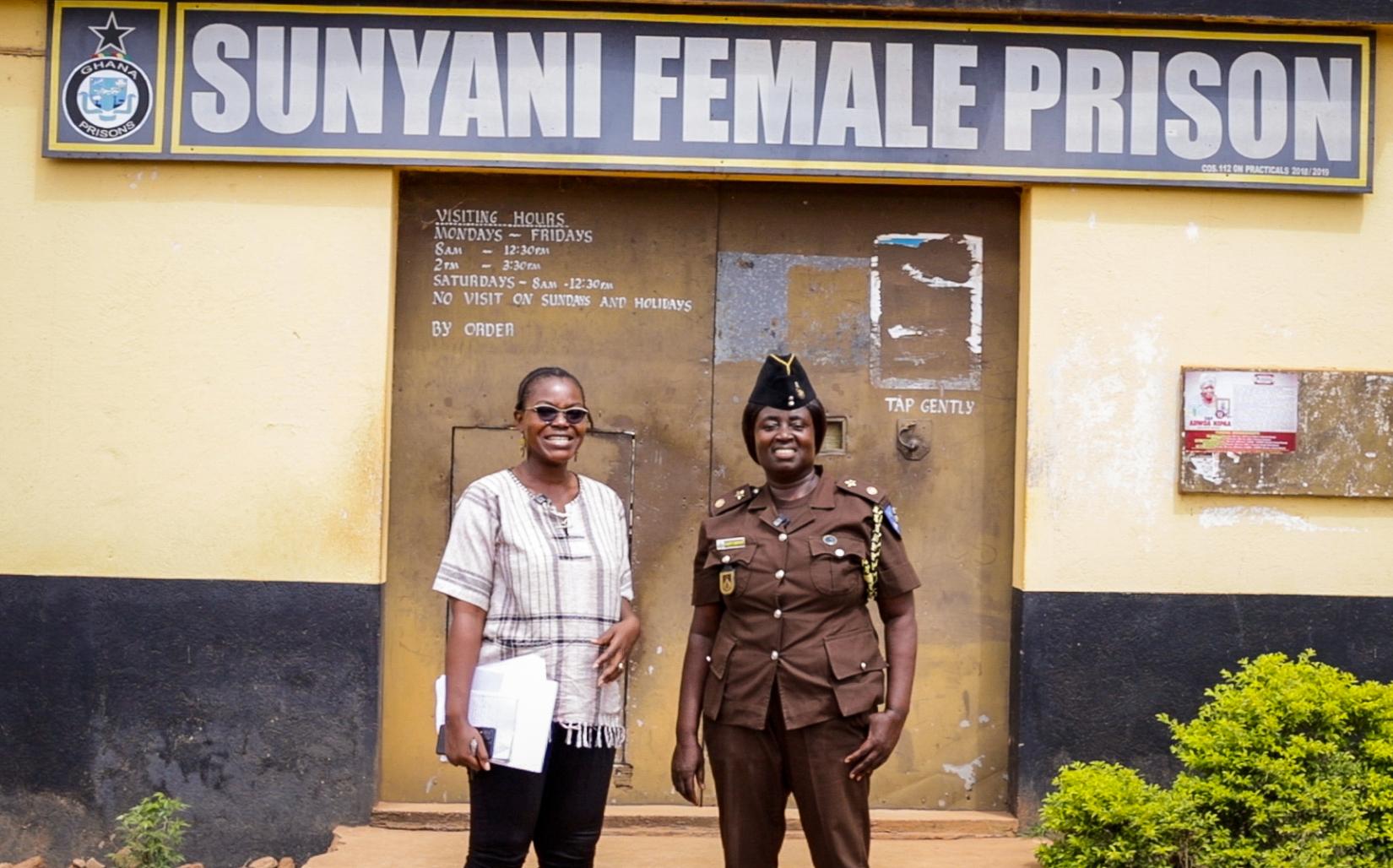Breaking barriers in Ghana: how positive female leadership can transform prisons

Abena’s four-year-old son sits in her lap, and calmness washes over him. As she holds on tightly, he falls asleep.
Just a few months ago, this wouldn’t have been possible. Abena is a prisoner at Sunyani Female Prison. Until recently, children were not allowed to visit the prison for fear of ‘contamination’, and the only contact between them and their parents took place through a window. They could never touch.
Today, as a result of a policy directive from the Director-General of Prisons, visits by children are encouraged – an innovation in Ghana’s female prisons that has improved prisoner morale, strengthened their ties with family members, and brought Ghana in line with international standards and norms, such as the Bangkok Rules.
The change came about in part due to the advocacy of Chief Superintendent Mary Asante Sarfo, Officer in Charge of Sunyani Female Prison, who is one of a small but growing number of female senior figures in Ghana’s prison service. In the complex world of prison administration, where maintaining security is sometimes perceived to clash with the need for humane treatment, Mary has emerged as an inspirational leader.

Breaking barriers
Mary began her journey with the Ghana Prisons Service in 1985, despite skepticism from her friends and community. Enlisting as a recruit from her earlier career as a teacher, she joined a field where women were significantly underrepresented. In her recruitment year, there were only 33 women to 125 men.
Starting her career at Nsawam Medium-Security Prison (Male), Mary discovered that women were confined to office roles, excluded from direct prisoner management. Undeterred, she pushed for opportunities to engage in yard duties and headcounts, with support from her male counterparts.
"The prisoners were eager to see a female officer, and everybody wanted to get closer to share his story," she recalls.
“You must first and foremost know that they are human beings”
“The law is there but we also look at the human aspects and treat them as people,” says Mary.
She seeks to maintain order through respecting prisoners' dignity, prioritizing empathy and communication. She emphasizes that, in her experience, empathy does not undermine authority but rather enhances it by fostering trust and cooperation. Regular communication with prisoners, understanding their concerns and stress, and addressing their needs are practices Mary has ingrained in the prison's culture.

This approach is in harmony with the United Nation Minimum Standards for the Treatment of Prisoners – known as the Nelson Mandela Rules. These rules provide the blueprint for good, rights-respecting prison management in the 21st Century, and Mary has been a tireless advocate for them. Mary credits a training from the UN Office on Drugs and Crime (UNODC) with helping her bring the Mandela Rules to life in Sunyani Female Prison.
Abena’s experience is testament to the power of this approach: "Because of the way they relate to us, even if you are a difficult person, you will change.”
Mary adds, “The fact that they have been incarcerated doesn’t mean that they have lost their rights. You must first and foremost know that they are human beings.”
Rehabilitation through education
Mary remembers when she was posted to the Sunyani Female Prison as a junior officer in 1993. At that time, she and the Officer in Charge introduced dressmaking and kenkey (a Ghanaian dish) - making programs for prisoners. These programs have expanded over the years to include a bakery, a tailoring shop, and a salon. Understanding that most prisoners lack literacy or vocational skills, she has championed programs aimed at equipping them with the knowledge and skills necessary for their reintegration into society, in line with the vision of the Prisons Service.
While in prison, Abena received training in hairdressing and beading, and now teaches her fellow prisoners so that they too can learn a trade.
Afua, another prisoner, has also benefited from vocational training provided in the prison. “They gave me the opportunity to choose what I wanted to learn and for me, it was professional catering skills even though it was not part of what was typically on offer,” she says.
Mary and her colleagues went the extra mile to seek community collaboration, affording Afua access to catering lessons. This training has allowed her to focus on creating a better future for herself and her three children. “If I’d had that guidance and training before, I probably would not have ended up in prison.” Read further.




